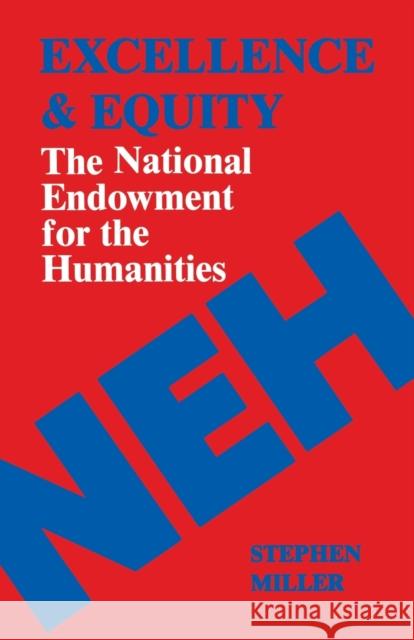Excellence and Equity: The National Endowment for the Humanities » książka
Excellence and Equity: The National Endowment for the Humanities
ISBN-13: 9780813153704 / Angielski / Miękka / 2014 / 208 str.
Since its establishment in 1965 the National Endowment for the Humanities has distributed many millions of dollars in grants. Has the money been well spent? What impact have the Endowment's programs had on the academic community, the schools, and the public at large?In this first book-length study of the Endowment, Stephen Miller offers a trenchant analysis of the agency's origins, its accomplishments, and the criticisms leveled against it. In the political maneuvering that led to its establishment, Miller sees a basic misunderstanding between those in academia who lobbied for NEH and those in Congress who were its most enthusiastic supporters. The inevitable result was a confused mandate that has made the work of the Endowment and the policies of its four chairmen the focus of congressional and public criticism.One group of critics has found NEH too elitist -- awarding too many grants to scholars at a few major universities. Others have regarded it as too populist -- expending too much on organizations that have little to do with the humanities. Still others regard its programs as simply a waste of the taxpayers' money. Excellence and Equity explores the continuing political controversy surrounding NEH and its chairmen and assesses in detail its impact on the humanities in four major program areas: research, teaching, preservation, and public programs. The book concludes with recommendations for restructuring the Endowment, for revising its review procedures, and for improving the process by which its chairman is selected. Only through such changes, Miller argues, can we hope to foster humanistic scholarship in the coming decades.











